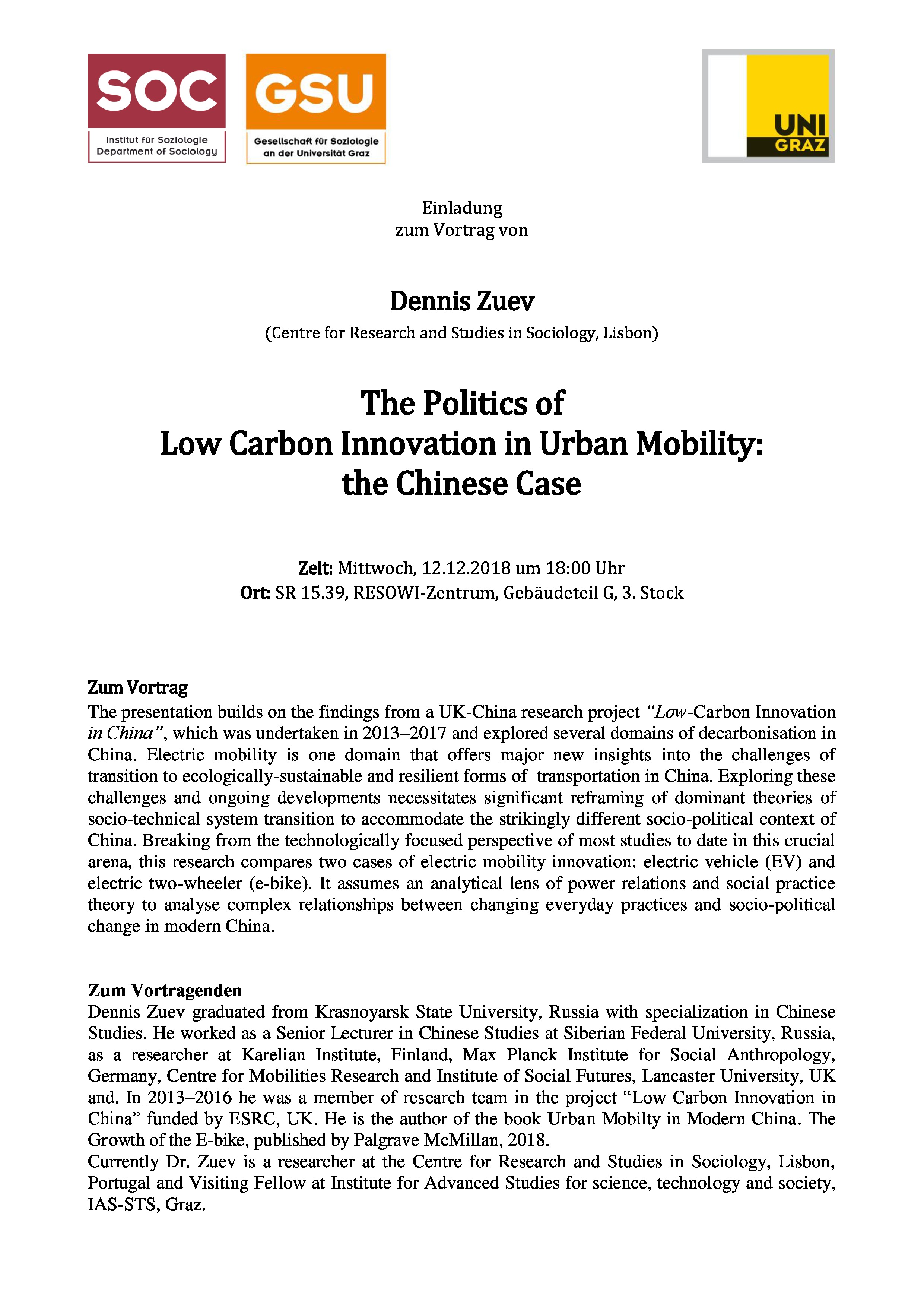The presentation builds on the findings from a UK-China research project “Low-Carbon Innovation in China”, which was undertaken in 2013–2017 and explored several domains of decarbonisation in China. Electric mobility is one domain that offers major new insights into the challenges of transition to ecologically-sustainable and resilient forms of transportation in China. Exploring these challenges and ongoing developments necessitates significant reframing of dominant theories of socio-technical system transition to accommodate the strikingly different socio-political context of China. Breaking from the technologically focused perspective of most studies to date in this crucial arena, this research compares two cases of electric mobility innovation: electric vehicle (EV) and electric two-wheeler (e-bike). It assumes an analytical lens of power relations and social practice theory to analyse complex relationships between changing everyday practices and socio-political change in modern China.
Zum Vortragenden:
Dennis Zuev graduated from Krasnoyarsk State University, Russia with specialization in Chinese Studies. He worked as a Senior Lecturer in Chinese Studies at Siberian Federal University, Russia, as a researcher at Karelian Institute, Finland, Max Planck Institute for Social Anthropology, Germany, Centre for Mobilities Research and Institute of Social Futures, Lancaster University, UK and. In 2013–2016 he was a member of research team in the project “Low Carbon Innovation in China” funded by ESRC, UK. He is the author of the book Urban Mobilty in Modern China. The Growth of the E-bike, published by Palgrave McMillan, 2018.
Currently Dr. Zuev is a researcher at the Centre for Research and Studies in Sociology, Lisbon, Portugal and Visiting Fellow at Institute for Advanced Studies for science, technology and society, IAS-STS, Graz.
